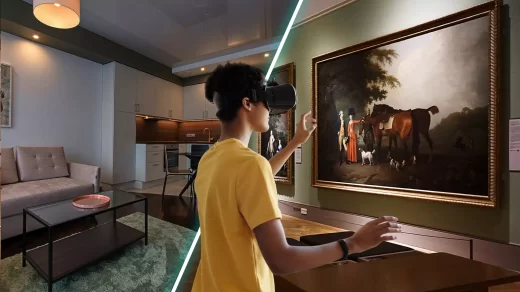TikTok has become a place for millions of people to speak about their lives, what culture they belong to, their interests, and many other niche life experiences, so much so that the wildest categories can be found there. In its early days, you could be on the “beauty side” of the app, or the “music side” etc., but after millions of more videos, these genres have become so complex that you could take any word and just add “Tok” after it and it will become its own category. Beauty-Tok became an umbrella term, and instead, you would either be on Lipstick-Tok, Lotion-Tok, Nailpolish-Tok, and so on and so forth. If you interact in any way with a video, your algorithm will adapt to it instantly, making the app a powerhouse for consumption.

The reason for this interest is that I’ve recently noticed how abundant and fruitful TikTok’s search engine is. If I have any questions, regarding any possible topic, I have found that TikTok is almost always successful, to the point where I prefer it over Google. This is due to the fact that they have made it possible to share whatever information you would like to share, in a simple way that is also able to reach millions of people, just by pure chance.
If I were to be looking for a book recommendation, TikTok would show me thousands of videos, tailored to my preference immediately. Not only will the video probably show a short description, both by audio and text, but usually also a visual representation of it, meaning you can instantly decide whether this is a book you would want to read or not. Additionally, reading the comments can tell you more about the recommendation, in a less formal way and also expose if the video is accurate or not. All of this being said, using TikTok as a search engine could potentially be really problematic. To begin, the app is still mainly used by young people, who aren’t the best detectors for precarious and tricky media and can spread hurtful and false information like wildfire. These are also the people who often partake in mob mentality. Furthermore, unless you do further research on other platforms, you cannot confirm the credibility behind anything you see. This argument is especially interesting and relevant for “Doctor-Tok”, where incorrect information could be detrimental to one’s health. To halt this pending issue, creators have started to quickly insert all their credibility as “doctors” at the start of the video which seems to appease most viewers, this is however, obviously, not trustworthy enough. After all, the reason behind the dangerous diet culture is that these so-called “doctors” feed off of young people’s insecurities and make quick videos showing “how to lose weight in 2 weeks!”. Similarly, on the other side of the spectrum, videos explaining the warning signs of cancer could be either fearmongering or lifesaving, or even both.

If all consumers of Doctor-Tok were ready to search for the “doctors” credibility then this wouldn’t be an issue, however, that is simply not an option considering what TikTok was meant for. At the end of the day, it’s an entrainment app that should be for mindless scrolling and quick amusement, but who is to say where that stops? News accounts are a popular category there, and at first, it seems like a brilliant way to get young people engaged in important societal and cultural matters, but with the same argument for Doctor-Tok, creators can use and manipulate their audience to spread misinformation. An example of this would be the rise of deepfakes, where many accounts started impersonating people to paint that person in a negative light for amusement. This is a worry for people who study misinformation, because the techniques used, are the same ones that spread political ideas, creating political division and encouraging conspiracies.
TikTok was not meant to hold the responsibility that we place on every creator and with the magnitude of revenue it gets, and the traction from people, it is nearly impossible to hold everyone accountable. It is therefore up to the viewer to be mindful of what they watch, and later spread to other people.




Recent Comments